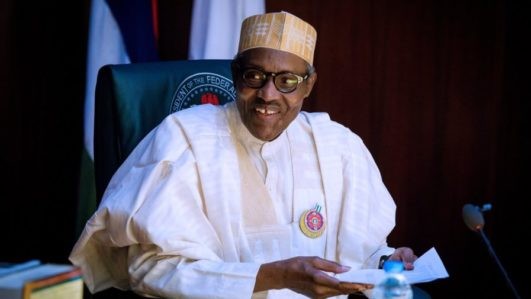Autonomy: No going back on Executive Order – FG

There is no going back on the Executive Order 0010 by President Muhammadu Buhari on autonomy to State Legislature and Judiciary, the Federal Government declared on Tuesday.
Rather, Attorney-General of the Federation and Minister of Justice, Mallam Abubakar Malami (SAN), said the current administration will work with Governors on modalities for effective implementation of the order.
He said the implementation Committee will incorporate valuable submissions from the Nigeria Governors’ Forum and other stakeholders.
He said the governors came out with the Executive order No- 0010 in order to deepen democracy from grassroots and ensure effective implementation of the doctrine of separation of powers.
Malami made the clarifications in a statement in Abuja through his Special Assistant on Media and Public Relations, Dr. Umar Jibrilu Gwandu.
The clarifications became necessary against the backdrop of claims by the governors that President Buhari had halted action on the implementation of the autonomy.
But Malami said the Federal Government only wanted submissions from the governors and other stakeholders.
He said: “The re-enforcement of the constitutional provisions on the autonomy of the state legislature and judiciary as contained in Section 121(3) of the 1999 Constitution of the Federal Republic of Nigeria necessitated the Executive Order No 0010.”
He said the government noted “with appreciation that the Governors of the 36 States of the Federation have agreed to the constitutionality of the autonomy of the state legislature and the Judiciary.”
He said: “The essence of the Order was to see to the implementation of the autonomy.”
The statement added: “While congratulating Nigerians on this landmark historic achievement geared toward engendering democratic principles at the grassroots, the Minister called on more inter-agency support for the Order which he said will accelerate development Nigerian masses have been clamoring for.
“In furtherance of the implementation of the Order, the Federal Government and Nigerian Governors’ Forum are jointly working on modalities for effective implementation of the order.
“The Executive Order implementation Committee will incorporate valuable submissions from Governor’s Forum and other stakeholders with a view to seeing practicable implementation of the Executive Order.”
Shortly after an audience with the President on Monday, the Chairman of the Nigeria Governors Forum (NGF), Dr. Kayode Fayemi said: “After listening to the concerns of the governors about the constitutionality of the Executive Order, President Buhari agreed to delay the gazetting.
“We have a delegation of the governors’ forum here to discuss some matters of fundamental importance to the nation and the President has asked that we meet with the AGF, the Chief of Staff and the Minister of Finance Planning and Budget on the issue.
”It is an issue that has seized the interest of many of you in the media and a lot of people across the federation, it is about the autonomy of the state legislature and the judiciary and we’ve met with the President before now on it and the President was very pleased that for us as governors, we are all united in support of the autonomy of State judiciary and the legislature; that’s the position of the 36 governors of the federation.
“What is the issue? It is on the constitutionality of the modalities of what had been put in the Executive Order and the President was gracious enough to say okay, given your concerns about that, we will delay the gazetting of the order and allow you to meet with the AGF and Finance Minister to work out the modalities.”
He said the governors have also been consulting with Conference of Speakers of State Legislature in order to work out an amicable resolution of the matter.
He added: “In any case, we have been meeting at our level with the Conference of Speakers. The Vice Chairman of the Nigerian Governors’ Forum, Governor Tambuwal of Sokoto State, was delegated to lead a number of governors who have gained legislative experience either because they were in the House of Representatives or they were Speakers of State Assemblies, or they were senators and that committee has been meeting with a delegation of the Conference of Speakers, working out the modalities and we believe that all of that would be settled amicably without any resort to court.” (The Nation)

